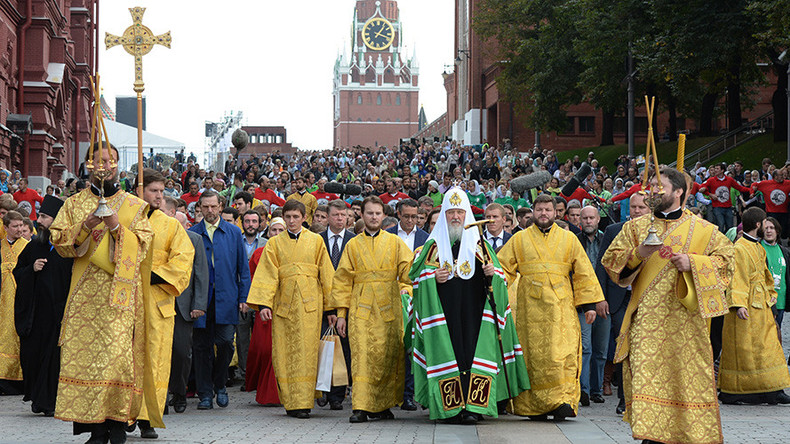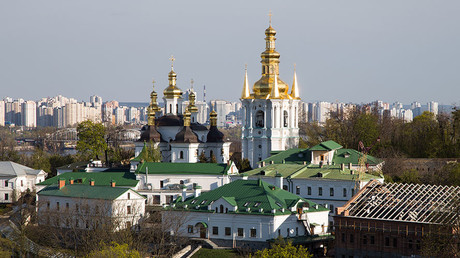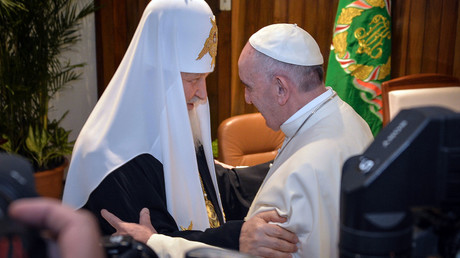Number of atheists in Russia halves in 3 years – poll

The poll, conducted by the Russian independent research center Levada in late June, showed that majority of Russians (62 percent) describe their attitude to atheists as “good and respectful,” with only 8 percent stating negative feelings towards this group. These figures remain virtually unchanged since 2014.
At the same time, the share of those who describe themselves as atheists fell sharply over this period – from 26 percent in 2014 to 13 percent today. Nine percent of participants in the poll said that they considered themselves “very religious” and 44 percent said they were “partly religious.”
In the same poll, 28 percent of respondents said that they were confident that the Church must influence the decision-making process in the upper echelons of state power. This is up from 26 percent three years ago.
The share of those who oppose such actions remained unchanged at 36 percent, while 39 percent said that in their minds the influence of the Church on state politics was “exactly at the necessary level.”
When researchers asked the Russian public about their attitude to representatives of various popular religions and confessions, Orthodox Christianity came out as the most popular with the approval of 92 percent of respondents. Just under three-quarters (74 percent) said that they had positive feelings towards Catholics and 61 percent said they felt respect towards Protestants.
The share of those who reported positive feelings towards Muslims is now 59 percent – which is unchanged since 2013. Seventeen percent described their feelings towards Muslims as “controversial” and 13 percent as “fear and hostility.”
Just over half (55 percent) of Russians said they had a good attitude to Jewish people, with 17 reporting controversial feelings and 11 percent stating they had negative sentiments.
Analysts from the Levada Center noted in comments published on the group’s website that while the share of religious people in the country was on the increase, the strength of their faith was apparently getting weaker.
“The increase in the number of believers is not accompanied by sincere faith or understanding of importance of the religion for spiritual life,” the comments read.
“Indirectly, the weakness of Orthodox Christian norms can be confirmed by growing opposition to restrictions imposed during major fasts – such as the restrictions on entertainment, alcohol or sex. The number of people who say that they are not ready to bear this burden has increased up to two times over the past few years.”











